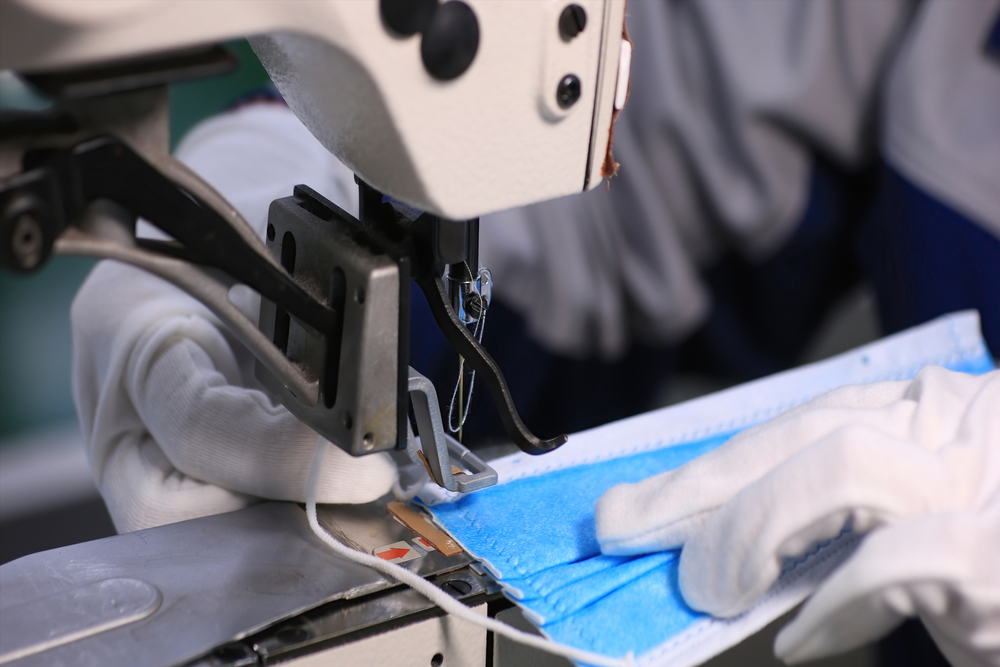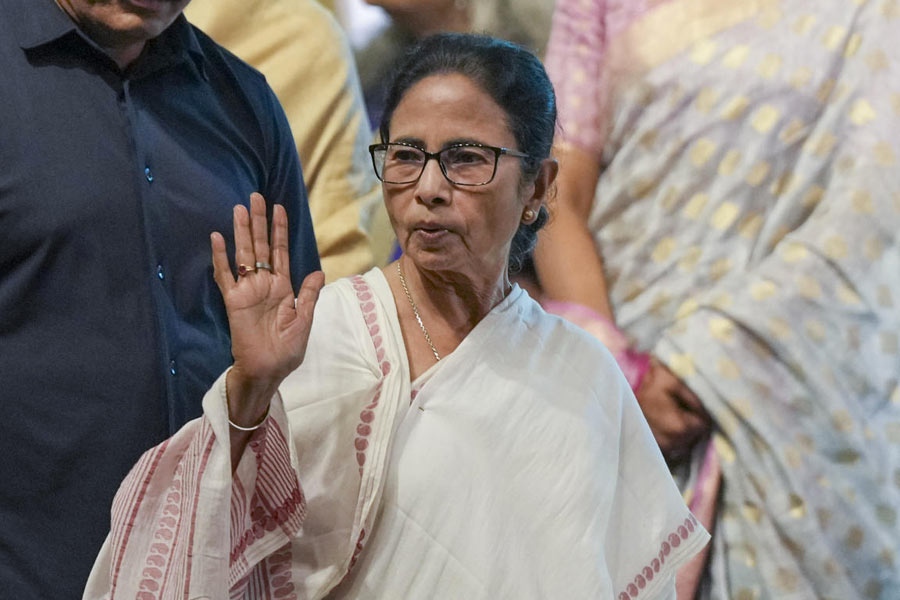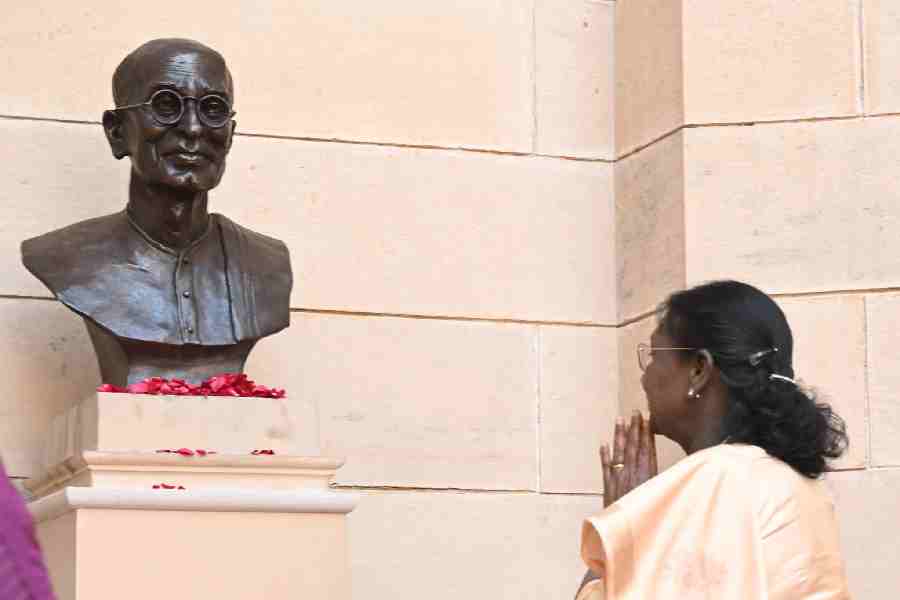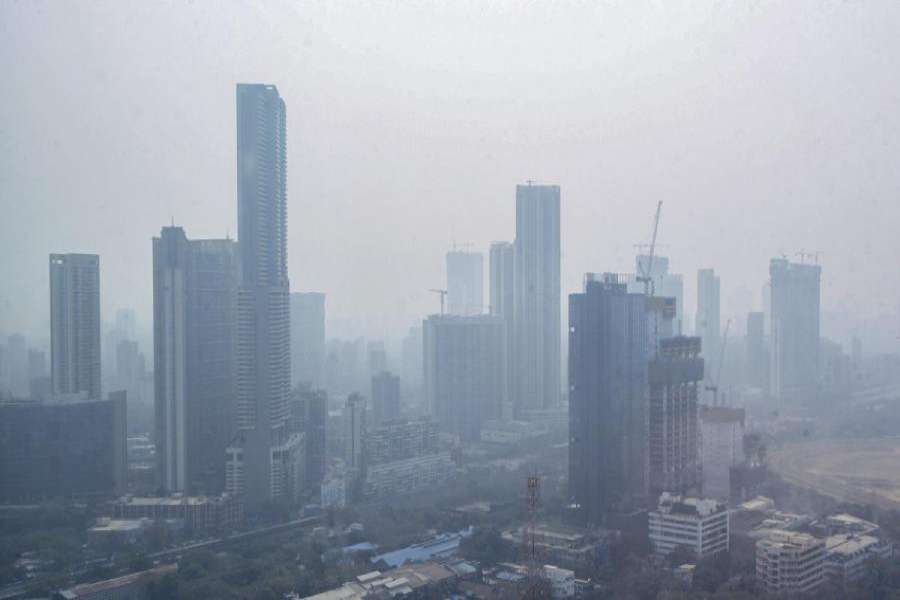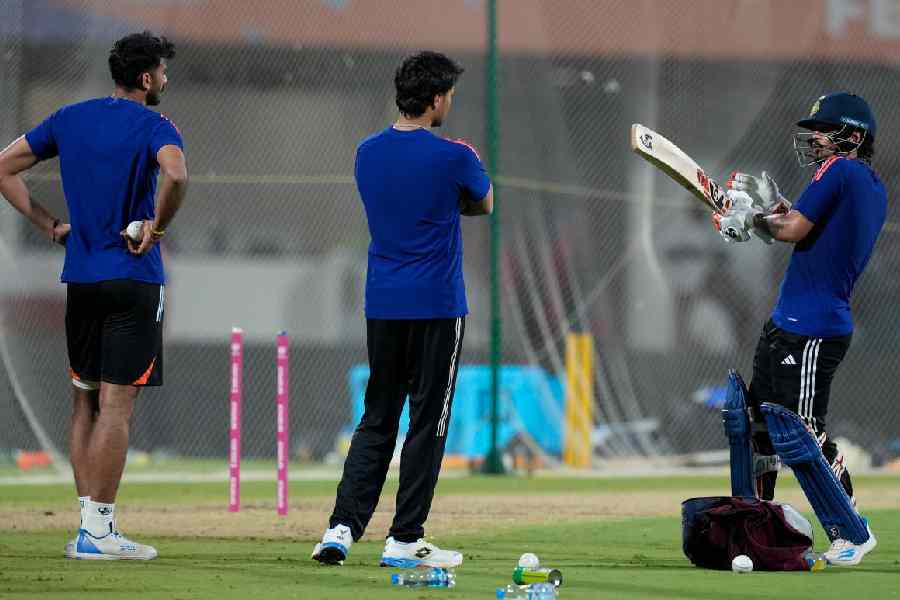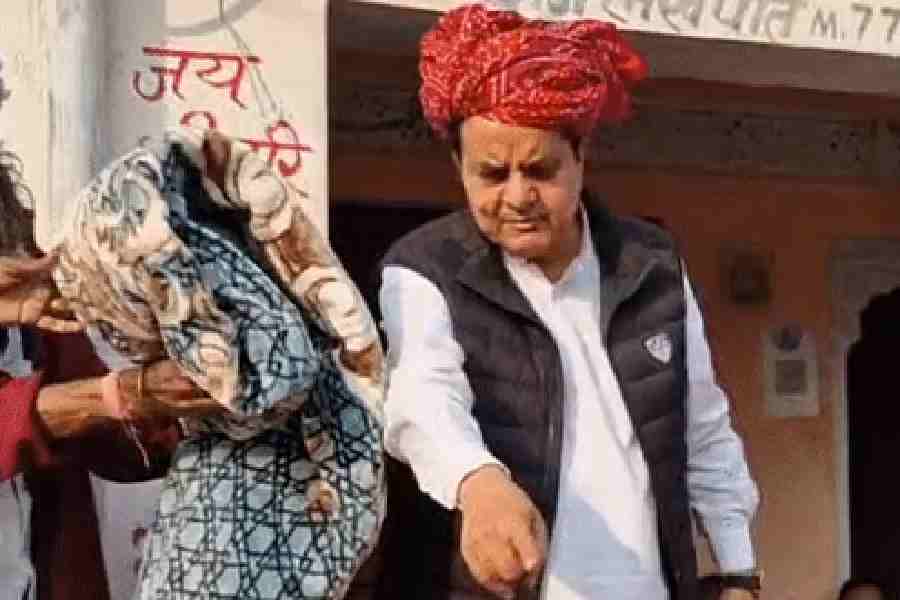Delhi Police women personnel are busy safeguarding those around them- this time from coronavirus by stitching masks and making sanitisers.
With the crime rate dipping during the lockdown period, Delhi Police women personnel have some time at hand and have pitched in to make the protective gear.
While the women staff at Najafgarh police station are stitching masks, those in Greater Kailash police station are making masks and sanitisers.
'The crime rate has gone down during this time and women staff usually have free time on their hands. A policewoman from Greater Kailash police station suggested that she could make masks,' a senior police officer from the south district said.
The SHO of the police station provided her conveyance to bring the sewing machine to the police station where other women personnel also joined her.
One women officer cuts the cloth, one stitches it and the third one sanitises it.
The officer said these masks are distributed to police personnel and even to those who cannot afford them.
The police station has also procured sodium hypochorite for making sanitiser. 'At pickets, we offer water to drivers and others who cross them. Instead of throwing away the bottles, we reuse them and fill them with sanitiser that we make at the police station,' the officer said.
At the Najafgarh police station, 12 lady police personnel -- one sub-inspector, one assistant sub-inspector, four head constables and six constables -- are voluntarily devoting three hours from their eight hour shifts on a daily basis to stitching masks, a senior officer from Dwarka district said.
'It has been noticed that cloth masks can be used multiple times after washing and sanitizing. The Najafgarh staff got the idea and they approached a sewing machine centre, where the lady staff is voluntarily working for around three hours as per the situation. In case of any emergency, they can be immediately rushed to the area,' he added.
They are preparing around 1000 masks in a day, he said, adding that in the last four days they have prepared around 4000 cloth masks.
'Presently, these masks are being distributed among the police staff as with the use of cloth masks the consumption of one time usable masks will go down. We are planning that later we can distribute these masks among the public also,' he added.
13,500 volunteers registered in Assam to help people manage mental stress
Around 13,500 persons have registered themselves as volunteers to help people manage their mental stress in the ongoing coronavirus crisis under an initiative launched by the Assam State Disaster Management Authority.
The volunteers will also be engaged in an exercise of contact-tracing of the COVID-19 cases in the state, officials said on Tuesday.
Anticipating that the battle against the pandemic will be a prolonged effort, the ASDMA has envisaged two initiatives -- 'Pratirodhi Bondhu', a scheme for mobilising volunteers, and 'e-Help Programme'--to tide over the crisis.
M S Manivannan, chief executive officer of the ASDMA, has already written to all the deputy commissioners of the state and joined hands with the common service centres across districts for implementing these two programmes.
'Needless to mention that stress has emerged as a new challenge in the time of lockdown and prohibitory orders, which can seriously affect mental health of the people.
'Moreover, fear of financial insecurity coupled with non-availability of certain basic services related to day-to- day life and livelihood may hurt people and this have brought further psychological impact on individuals and families as a whole,' the letter said.
Under the 'Pratirodhi Bondhu' programme, the volunteers will be trained to support the frontline workforce in non-medical activities as per guidelines of the National Disaster Management Authority and the UNICEF for COVID-19 response.
On the other hand, the same work will also be carried out under the 'e-Help Programme' through the existing network of CSCs.
'Both the initiatives are aimed at providing support to the frontline workforce in certain non-medical activities related to COVID-19 response and also to reach out to the vulnerable section across Assam,' the letter said.
It also mentioned that the network of CSCs can be used to provide essential services like banking,information dissemination, counselling and telemedicine, veterinary doctor consultation, training and awareness creation.
When contacted to know details about the initiatives, Manivannan told PTI: 'We have already started the process of inviting applications for volunteers. In few days, around 13,500 persons have registered on our website.'
The ASDMA is also chalking out the guidelines and modalities, after which these people will be trained and deployed in all the districts, he added.
According to the concept note of the programme, each volunteer will be engaged for a period, varying between 10 days and 60 days from April to September this year.
Asked whether the government is anticipating that the COVID-19 crisis will continue for the next six months, Manivannan said, 'We do not know how long it will continue.
But we are preparing for the long haul.'
For the COVID-19 scenario, the main activities of the volunteers will be to give telephonic support to people, spread awareness on social distancing, involve in the exercise of contact-tracing and extend emotional support to elderly, children and people with disabilities.
He said the ASDMA has already tied up with over 6,000 CSCs in the state to reach out to maximum number of people in the battle against the deadly virus.
Commenting on the development, CSC chief executive officer Dinesh Kumar Tyagi said, 'Assam will become a model for addressing issues arising out of the coronavirus crisis, at panchayat level and to support citizens.'
The ASDMA also plans to utilise the CSCs as stock and distribution points for essential commodities such as groceries and vegetables for home delivery in coordination with its field officers.

